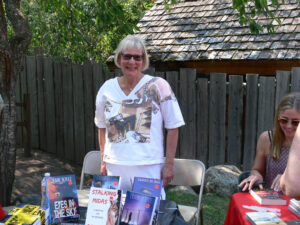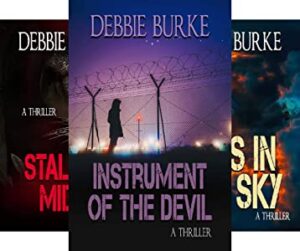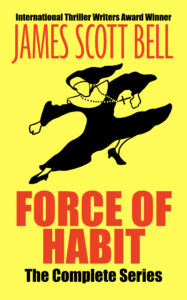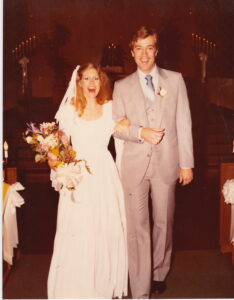Progress and practice are essential to both improving our writing and succeeding in the sense of completing work and putting it out into the world, be it as a submission to an agent or publisher, or an indie-published work. But how do you break down the elements of progress and measure it? How do you restart your practice of writing when you’ve stalled out?
Today’s Words of Wisdom has you covered with excerpts of posts by Clare Langley-Hawthorne, Debbie Burke and James Scott Bell. The original posts are of course date-linked at the bottom of their respective excerpts.

A few weeks ago I spotted an article in the New York Times entitled ‘Micro-Progress and the Magic of Just Getting Started’ (you can read it here) and realized it was tailor made for us writers (especially after I’d seen a number of posts on my writing groups about writers writers feeling overwhelmed about their projects).
The idea of ‘micro-progress’ is simple: For any task you have to complete, break it down to the smallest possible units of progress and attack them one at a time.
In many ways, it’s an obvious concept. But what caught my eye, was the fact that studies had shown that micro-progress (or establishing micro-goals) can actually trick the brain into increasing dopamine levels, providing satisfaction and happiness. Sounds like the perfect plan for anyone facing the daunting prospect of completing a novel:)
Online I was seeing posts from people who felt overwhelmed by revisions, who were despairing that their novel had run aground mid way through, or who were experiencing chronic writer’s block and desperate for advice. In all of these situations, focusing on ‘micro-progress’ seemed a useful place to start.
The concept of ‘micro-progress’ has also helped me. I currently have a number of projects out on submission and a couple of ones with my agent – so it was time to start a new WIP. I faced a dilemma though – I had the first 50 pages of a YA novel that I’ve been noodling over (actually driving myself insane over is probably more apt) and yet I was concerned it still wasn’t quite ‘there yet’. I struggled with whether I really knew what the book was about (despite a synopsis and outline, mind you). So I decided it was best to put it aside and start a completely new project – yet at the back of my mind I still couldn’t quite let the old project completely die. Enter ‘Micro-Progress’!
I decided to use the advice in the NYT article and tackle both projects but with a different mindset. For the brand new WIP I’d sit down and get started in the usual way. I have the synopsis and outline so it was time to face the blank page and get writing. I’d focus on this everyday except Friday – when I’d allow myself to tackle the old project but with a ‘micro-progress’ approach. I’d just take it scene by scene in Scrivener and see what happened – without placing too much pressure on myself. The regular WIP could progress in the usual fashion – but for this one I’d be happy setting smaller, more manageable goals to see how it would all come together. In this way a ‘micro-progress’ mindset helped overcome my confidence issues as well my concerns about abandoning the project all together.
A ‘micro-progress’ mindset could be helpful in almost all our writing as it focuses on the smaller more manageable steps that can be taken. The evidence also seems to demonstrate that this approach can stimulate our brains, enabling us to continue, progress and feel a sense of achievement and satisfaction – rather than becoming overwhelmed by the totality of the task ahead. But I guess the key question is – TKZers – what do you think about ‘micro-progress’?
Clare Langley-Hawthorne—February 26, 2018
By now, you’re wondering if I’ll ever get to the point of this post.
This is it.
Writing has never been a profession that delivers immediate gratification.
Measuring one’s writing progress is tough to quantify. In a regular job, a paycheck every week or two proves the worker’s worth and skills.
In writing, months and years may go by without a “paycheck.”
Even when your career reaches a point where you receive advances and royalties, the income probably won’t support you in the style you’d like to become accustomed to.
If you can’t measure your writing progress in a tangible monetary way, how do you know if you’re improving?
Your best yardstick is yourself.
Look back at what you wrote six months ago, a year, five years, or 20 years ago. Have your skills improved? Have you learned new craft techniques?
Did a class or workshop change the way you create characters, or handle action scenes, or infuse emotion into your stories? Has your pacing improved? Did you head-hop in the past but now you’ve finally mastered point of view (POV)?
Do readers and other writers notice improvement in your work?
Do you waste less time floundering around trying to find a story? Do you have more focus and better concentration when you write? Do you feel more confident about showing your writing to others?
Do you have goals? Have you achieved some of them? Then do you set higher goals?
Writing is a ladder without end. No one knows everything about writing. We all need to work continuously to improve our craft, master more complicated skills, and produce more words.
Debbie Burke—May 23, 2023
My keyboard was getting cold. So I had to go back and re-establish some disciplines. Here they are:
- Plan the next day’s writing the night before
At night, when I’m always too spent to produce more, I take just a few minutes to think about what I’ll write tomorrow. Hemingway famously said he’d leave off writing midsentence, so he could take off running the next day.
So I think about the scene I’m going to write next. I give it some structure brainstorming: Objective, Obstacles, Outcome.
Then I’ll write one sentence. Just one. And that’s where I start when morning comes. Which brings me to tip #2:
- Sleep
We all know that good, restorative sleep makes a big difference in our daily lives. We also know sleep problems are rife, especially in the anxiety-inducing world we live in.
That’s why there’s a boom in sleep products. The most common ingredient is melatonin. I like to manage my melatonin naturally. I try to get ten to fifteen minutes of sunlight between 11 a.m. and 1 p.m. (good for Vitamin D, too). I also try to keep off the blue light of phone and computer and TV screens before bed. If I do some computer or watch some TV, I wear yellow-tint glasses. This renders color movies or shows a bit, well, yellowish. But I can live—and sleep—with that.
Now here’s JSB’s secret tip for a good night’s sleep: Quercetin. I pop an 800mg tab half an hour before I hit the pillow. I no longer wake up in the middle of the night.
And here is an added benefit: Quercetin is an ionophore. That means it’s a molecule that helps your cells absorb good things, like zinc. Another ionophore is hydroxychloroquine. Remember the suppression of HCQ at the beginning of Covid? Don’t get me started on the political and medical malpractice of that. HCQ, like quercetien, helps the cells absorb zinc which, along with D, is the Praetorian Guard of the immune system.
Thus the adage “An apple a day keeps the doctor away.” Apples are a great source of quercetin. That’s why all those apple-egg-meat eating farmers never got sick.
- Write first thing in the morning
Well, second thing. First thing is make the coffee. Mrs. B and I spend devotional time together, so I get up earlier and knock out a Nifty 250 (or 350 if I’m going good) before she joins me in the living room. I sometimes do this on my laptop. I used to do it on my beloved AlphaSmart. But Alphie is showing his age lately, so I invested in a very cool Macally wireless keyboard that has a slot for your phone or tablet. I write my words in Google Docs.
Getting a 250 or 350 jump on the day makes hitting the quota so much easier.
I’ll sometimes do some morning pages to get the engine started. This often results in a new idea for a story. [Note: I don’t count morning pages in my quota, unless I end up using some of them in a project.]
James Scott Bell—October 15, 2023
***
- Have you tried breaking down a task into the smallest possible unit as Clare described? Any advice to add on doing so?
- How do you measure your progress as a writer?
- If you’ve ever stopped writing or been stalled out, how have you restarted your practice of writing?



 Like bang for your buck? I have a
Like bang for your buck? I have a 









 Beforehand, set up your own book table.
Beforehand, set up your own book table.




